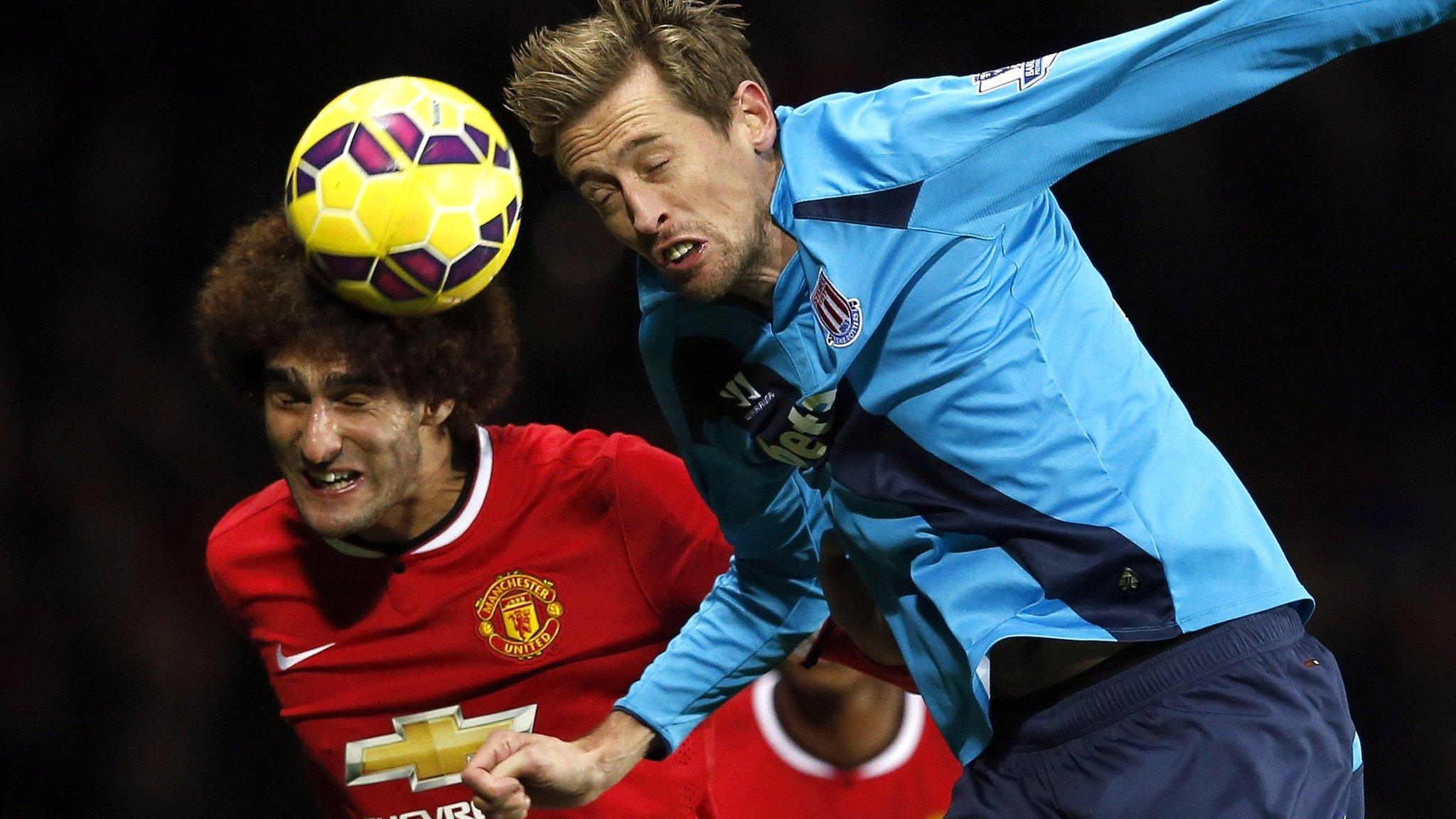FA & PFA to commission study into potential links between football and brain disease
- Published
Dawn Astle quits interview with PFA chief Gordon Taylor
The Football Association and Professional Footballers' Association are set to commission a study into potential links between heading footballs and brain damage.
The two bodies have invited applications for independent research.
Ex-England forward Jeff Astle died aged 59 in 2002, with a coroner ruling it was a result of brain trauma.
A re-examination of his brain in 2014 found he had died from chronic traumatic encephalopathy (CTE).
Neurosurgeon Dr Willie Stewart, who carried out that examination, said it had been caused by Astle heading footballs throughout his career.
Astle's daughter Dawn said she was "really pleased" by the announcement of the joint FA-PFA study, adding it had been "a long time coming".
She added: "As long as the research is the right research, and being done by the right people to answer the key questions which have been asked by the FA and ourselves, then that is fine."
The research will specifically address the question of whether degenerative brain disease is more common in ex-professional footballers than in the rest of the population.
Those interested in carrying out the research, external have until 17 May to apply.
The FA's head of medicine, Dr Charlotte Cowie, said "the process will not be rapid" to ensure those affected "can be confident in the final results".
'Football can be a killer'
Astle was originally diagnosed with early onset dementia, and his cause of death was listed by the coroner as an "industrial disease".
Twelve years after the former West Brom player's death, Dr Stewart found he had died from CTE, a brain condition normally linked to boxing.
In 2015, Astle's family launched the Jeff Astle Foundation,, external which promotes care of others affected, and research and education into the condition.
Later that year, the FA agreed to carry out research into head injuries in the sport, and also drew up new guidelines on how to deal with concussion.
Dawn Astle said the latest step will help the next generation of footballers make "informed choices".
She said: "It is like smoking - we all know smoking can give you lung cancer, the warning is there on the cigarettes. You choose whether you smoke or not, and this will be no different.
"We know smoking can be a killer, we know football can be a killer - it is on dad's death certificate.
"It is not about stopping football, banning it, anything like that. It is just about letting people make informed choices, and without the research you can't do that."
'No-one has done more than us'
The Astle family have criticised the players' union for a lack of progress in researching possible links between heading footballs and brain disease.
Dawn Astle walked out of a meeting with PFA chief executive Gordon Taylor earlier this month, and both she and Astle's widow Laraine have also called on him to resign., external
Yet Taylor, 72, defended his organisation's record, calling the criticism "unfair".
"I don't know of another football organisation anywhere in the world that has done more than us," said Taylor. "If you do, please tell me.
"I don't think there's a sports organisation that has done as much as us.
"I feel very offended when people accuse us of a cover-up and say we don't want to know about the health risks. We do."
Dr Cowie added: "This is a crucial issue for the FA and one that we feel passionately about addressing.
"Player welfare is paramount and it is increasingly important that the football authorities investigate further whether there are any potential risks associated with heading the ball, as this is a unique feature of our game."
- Attribution
- Published15 February 2017

- Published9 April 2016

- Attribution
- Published1 June 2014

- Published3 December 2014
